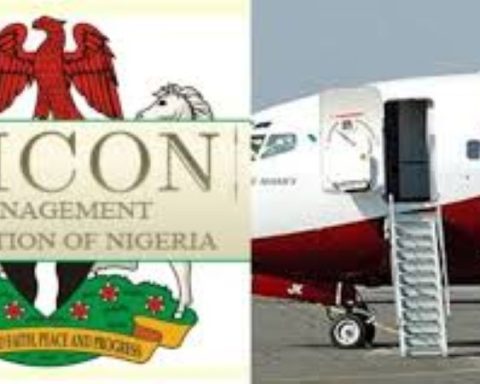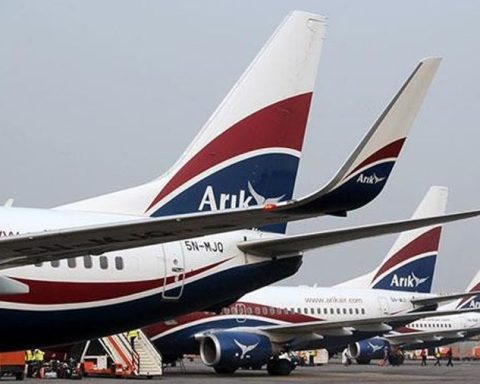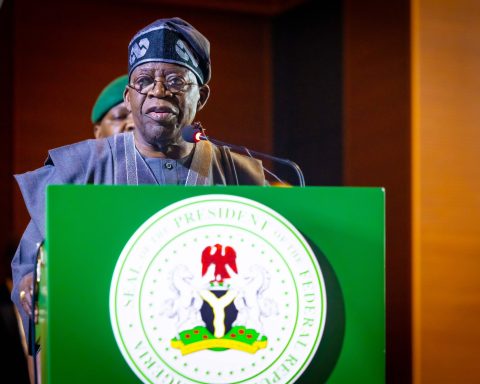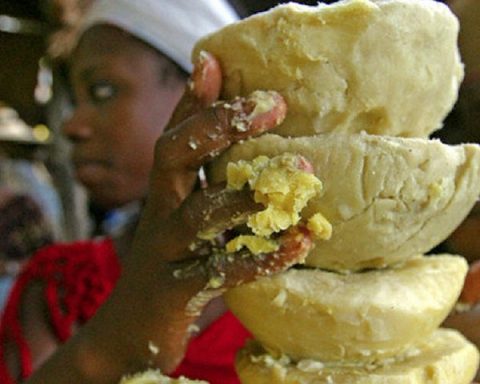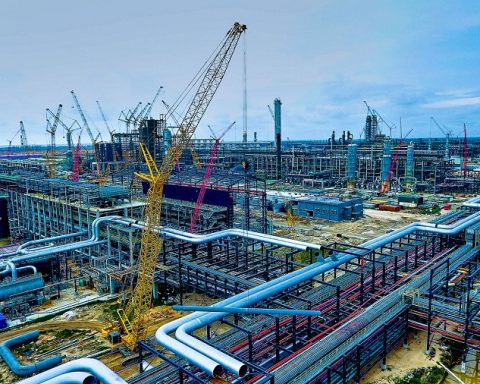The World Bank has urged the Federal Government to urgently slash high import tariffs and lift select import bans as part of immediate measures to curb soaring inflation and rising poverty across the country.
Mathew Verghis, the World Bank Country Director for Nigeria, made the call during an interview with Arise TV, warning that Nigeria’s inflation especially food inflation has reached “dangerously high” levels and is eroding the income of millions of households.
According to the Bank’s latest Nigeria Development Update (NDU), food prices remain the biggest driver of hardship, with inflation hovering around 20 percent and disproportionately impacting low-income earners. The Bank noted that nearly 139 million Nigerians are now living in poverty, a figure it says is likely to worsen if inflation remains unchecked.
Join our WhatsApp ChannelREAD ALSO : UBA Unveils Landmark Whitepaper on Financing Africa’s Future at World Bank–IMF Meetings
Nigeria Retains Position As Third-largest Debtor To World Bank’s IDA
Verghis explained that Nigeria’s high import tariffs and several import bans are contributing to elevated prices of essential goods widely consumed by poorer households. Removing these barriers, he said, would ease pressure on food and commodity prices, create immediate relief for families, and help stabilise the economy.
The World Bank also highlighted that eliminating import bans and harmonising tariffs could boost customs revenue by up to 66 per cent, pointing out that current tariff deviations and restrictions are distorting the market and encouraging smuggling.
Beyond the short-term relief expected from tariff cuts, the Bank stressed that Nigeria must deepen structural reforms to ensure that economic gains translate into tangible welfare improvements. It listed the country’s weak logistics network, bottlenecks in agricultural supply chains, and poor infrastructure as key constraints that must be addressed.
The Bank further advised the government to expand social-safety nets to cushion the impact of ongoing reforms, describing persistent food inflation as “the biggest tax on the poor.”
Verghis added that while the Tinubu administration has taken steps to stabilise the economy, more decisive actions are required to “bring the gains of reforms home” and protect households from sliding deeper into poverty.
The Federal Government has yet to formally respond to the World Bank’s recommendations.
Amanze Chinonye is a Staff Correspondent at Prime Business Africa, a rising star in the literary world, weaving captivating stories that transport readers to the vibrant landscapes of Nigeria and the rest of Africa. With a unique voice that blends with the newspaper's tradition and style, Chinonye's writing is a masterful exploration of the human condition, delving into themes of identity, culture, and social justice. Through her words, Chinonye paints vivid portraits of everyday African life, from the bustling markets of Nigeria's Lagos to the quiet villages of South Africa's countryside . With a keen eye for detail and a deep understanding of the complexities of Nigerian society, Chinonye's writing is both a testament to the country's rich cultural heritage and a powerful call to action for a brighter future. As a writer, Chinonye is a true storyteller, using her dexterity to educate, inspire, and uplift readers around the world.
- Amanze Chinonye
- Amanze Chinonye
- Amanze Chinonye
- Amanze Chinonye
- Amanze Chinonye
- Amanze Chinonye
- Amanze Chinonye
- Amanze Chinonye
- Amanze Chinonye
- Amanze Chinonye
- Amanze Chinonye
- Amanze Chinonye
- Amanze Chinonye
- Amanze Chinonye
- Amanze Chinonye
- Amanze Chinonye
- Amanze Chinonye
- Amanze Chinonye
- Amanze Chinonye
- Amanze Chinonye
- Amanze Chinonye
- Amanze Chinonye
- Amanze Chinonye
- Amanze Chinonye
- Amanze Chinonye
- Amanze Chinonye
- Amanze Chinonye
- Amanze Chinonye
- Amanze Chinonye
- Amanze Chinonye
- Amanze Chinonye
- Amanze Chinonye
- Amanze Chinonye
- Amanze Chinonye
- Amanze Chinonye
- Amanze Chinonye
- Amanze Chinonye
- Amanze Chinonye
- Amanze Chinonye
- Amanze Chinonye
- Amanze Chinonye
- Amanze Chinonye
- Amanze Chinonye
- Amanze Chinonye
- Amanze Chinonye
- Amanze Chinonye
- Amanze Chinonye
- Amanze Chinonye
- Amanze Chinonye
- Amanze Chinonye
- Amanze Chinonye
- Amanze Chinonye
- Amanze Chinonye
- Amanze Chinonye
- Amanze Chinonye
- Amanze Chinonye
- Amanze Chinonye
- Amanze Chinonye
- Amanze Chinonye
- Amanze Chinonye
- Amanze Chinonye
- Amanze Chinonye
- Amanze Chinonye
- Amanze Chinonye
- Amanze Chinonye
- Amanze Chinonye
- Amanze Chinonye
- Amanze Chinonye
- Amanze Chinonye
- Amanze Chinonye
- Amanze Chinonye
- Amanze Chinonye
- Amanze Chinonye
- Amanze Chinonye
- Amanze Chinonye
- Amanze Chinonye
- Amanze Chinonye
- Amanze Chinonye
- Amanze Chinonye
- Amanze Chinonye
- Amanze Chinonye
- Amanze Chinonye
- Amanze Chinonye
- Amanze Chinonye
- Amanze Chinonye
- Amanze Chinonye
- Amanze Chinonye
- Amanze Chinonye
- Amanze Chinonye
- Amanze Chinonye
- Amanze Chinonye
- Amanze Chinonye
- Amanze Chinonye
- Amanze Chinonye
- Amanze Chinonye
- Amanze Chinonye
- Amanze Chinonye
- Amanze Chinonye
- Amanze Chinonye
- Amanze Chinonye
- Amanze Chinonye
- Amanze Chinonye
- Amanze Chinonye
- Amanze Chinonye
- Amanze Chinonye
- Amanze Chinonye
- Amanze Chinonye
- Amanze Chinonye
- Amanze Chinonye
- Amanze Chinonye
- Amanze Chinonye
- Amanze Chinonye
- Amanze Chinonye
- Amanze Chinonye
- Amanze Chinonye
- Amanze Chinonye
- Amanze Chinonye
- Amanze Chinonye
- Amanze Chinonye
- Amanze Chinonye
- Amanze Chinonye
- Amanze Chinonye
- Amanze Chinonye
- Amanze Chinonye
- Amanze Chinonye
- Amanze Chinonye
- Amanze Chinonye
- Amanze Chinonye
- Amanze Chinonye
- Amanze Chinonye
- Amanze Chinonye
- Amanze Chinonye
- Amanze Chinonye
- Amanze Chinonye
- Amanze Chinonye






